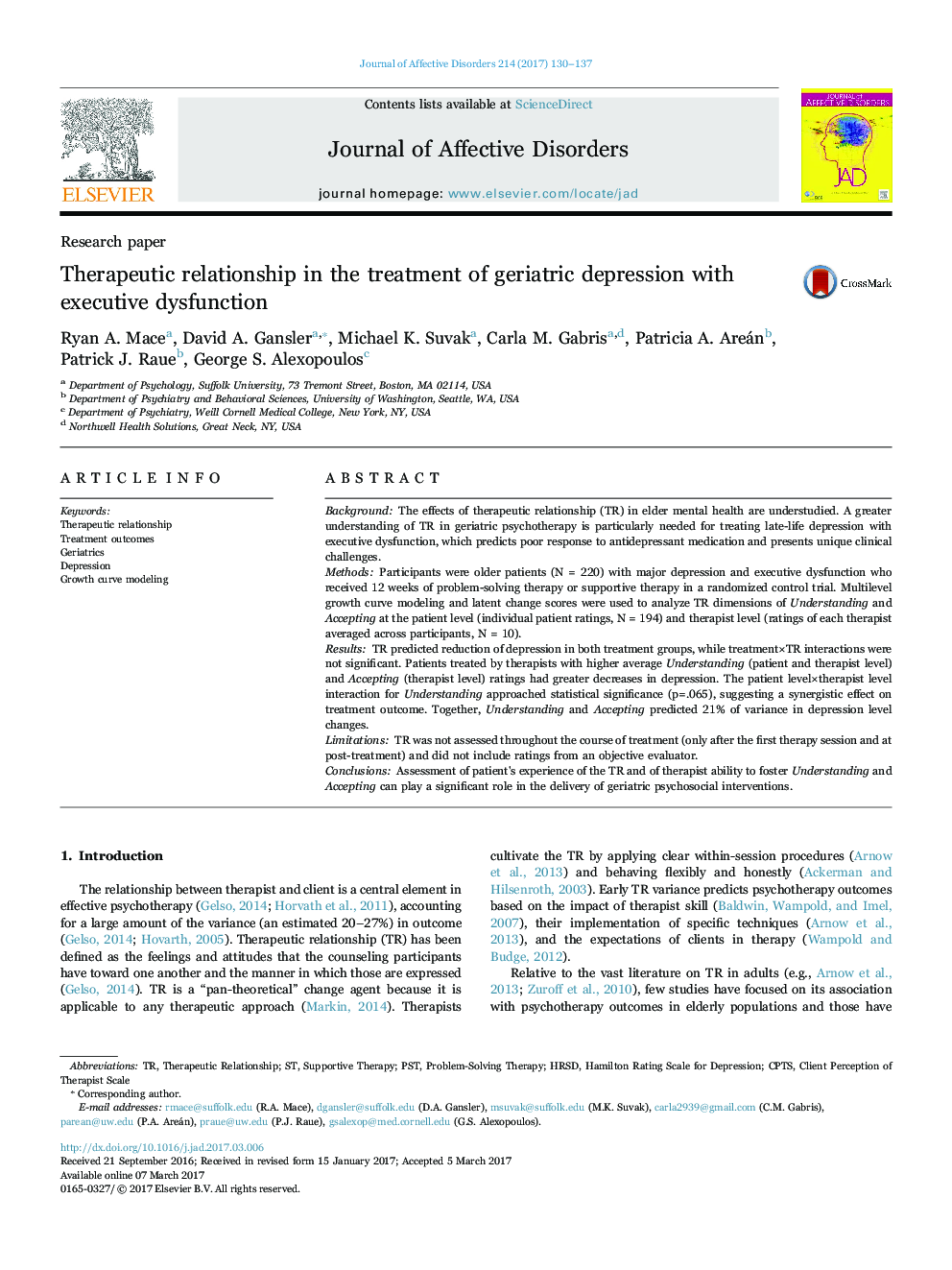| کد مقاله | کد نشریه | سال انتشار | مقاله انگلیسی | نسخه تمام متن |
|---|---|---|---|---|
| 5722044 | 1608111 | 2017 | 8 صفحه PDF | دانلود رایگان |
- Therapeutic relationship (TR) is an important factor in treating elder depression.
- TR predicted reduction of depression in both psychotherapy treatment groups.
- The influence of TR was affected by patient and therapist contribution levels.
- Higher TR (Understanding and Accepting) let to greater decreases in depression.
- Understanding and Accepting predicted 21% of variance in depression level changes.
BackgroundThe effects of therapeutic relationship (TR) in elder mental health are understudied. A greater understanding of TR in geriatric psychotherapy is particularly needed for treating late-life depression with executive dysfunction, which predicts poor response to antidepressant medication and presents unique clinical challenges.MethodsParticipants were older patients (N = 220) with major depression and executive dysfunction who received 12 weeks of problem-solving therapy or supportive therapy in a randomized control trial. Multilevel growth curve modeling and latent change scores were used to analyze TR dimensions of Understanding and Accepting at the patient level (individual patient ratings, N = 194) and therapist level (ratings of each therapist averaged across participants, N = 10).ResultsTR predicted reduction of depression in both treatment groups, while treatmentÃTR interactions were not significant. Patients treated by therapists with higher average Understanding (patient and therapist level) and Accepting (therapist level) ratings had greater decreases in depression. The patient levelÃtherapist level interaction for Understanding approached statistical significance (p=.065), suggesting a synergistic effect on treatment outcome. Together, Understanding and Accepting predicted 21% of variance in depression level changes.LimitationsTR was not assessed throughout the course of treatment (only after the first therapy session and at post-treatment) and did not include ratings from an objective evaluator.ConclusionsAssessment of patient's experience of the TR and of therapist ability to foster Understanding and Accepting can play a significant role in the delivery of geriatric psychosocial interventions.
Journal: Journal of Affective Disorders - Volume 214, May 2017, Pages 130-137
